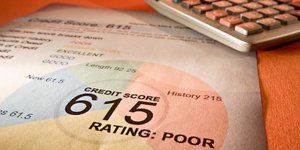 Today’s top story: Costly subprime credit cards offer little help. Also in the news: Take charge of your credit score with your credit report, why you should consider a mortgage recast, and four ways to manage your credit card debt.
Today’s top story: Costly subprime credit cards offer little help. Also in the news: Take charge of your credit score with your credit report, why you should consider a mortgage recast, and four ways to manage your credit card debt.
Costly Subprime Credit Cards Offer Little Help, NerdWallet Study Finds
Just digging a deeper hole.
If You Want a Good Credit Score, Read Your Credit Reports
Studying up.
Why You Should Consider a Mortgage Recast
Save on your monthly payment.
4 ways to manage your credit card debt
Getting it under control.
 Today’s top story: How to assess your credit card needs after divorce. Also in the news: Generation Z is off to a strong start with credit, why your friend has a better credit score than you, and how to ensure your gift cards don’t go to waste.
Today’s top story: How to assess your credit card needs after divorce. Also in the news: Generation Z is off to a strong start with credit, why your friend has a better credit score than you, and how to ensure your gift cards don’t go to waste. Today’s top story: How to take the heat off your summer budget. Also in the news: How to find out if you’ll owe taxes on an inheritance, 3 things your student loan servicer might not tell you, and what happens to your credit score when you transfer a balance.
Today’s top story: How to take the heat off your summer budget. Also in the news: How to find out if you’ll owe taxes on an inheritance, 3 things your student loan servicer might not tell you, and what happens to your credit score when you transfer a balance.  Today’s top story: 7 tax tips for new college grads. Also in the news: Why many people don’t know the cost of bad credit, how to travel on the cheap, and the death of payday loans.
Today’s top story: 7 tax tips for new college grads. Also in the news: Why many people don’t know the cost of bad credit, how to travel on the cheap, and the death of payday loans. Today’s top story: What to do when you get an IRS audit notice. Also in the news: Budgeting for new parents, where to sell your stuff online, and how your credit score is linked to your chance of divorce.
Today’s top story: What to do when you get an IRS audit notice. Also in the news: Budgeting for new parents, where to sell your stuff online, and how your credit score is linked to your chance of divorce.